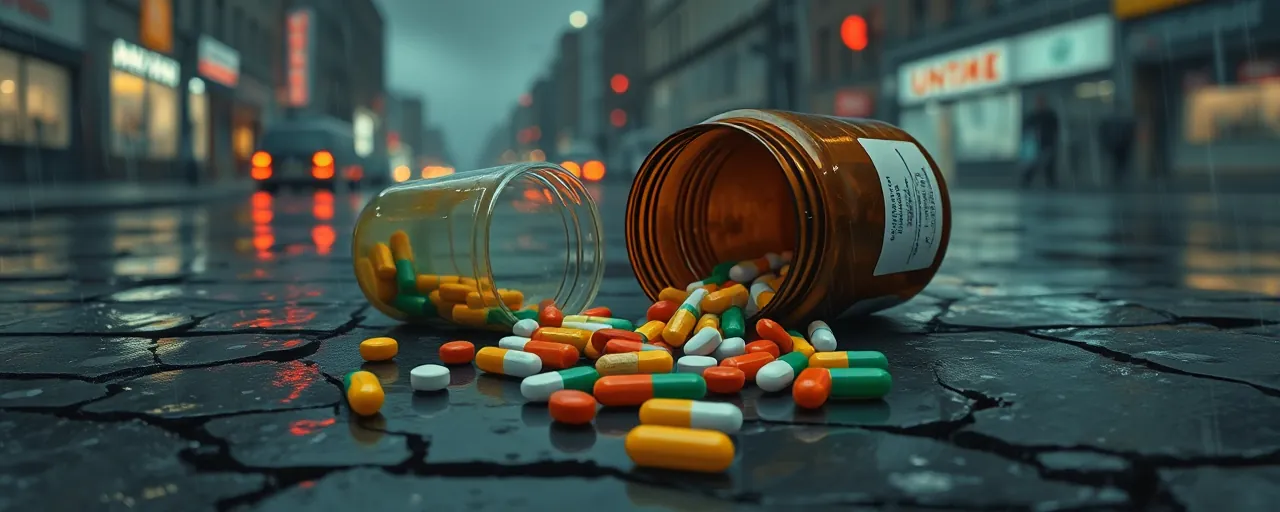A Crisis That Defies Punishment
Jesus Alfredo Beltran Guzman, a name now etched in the U.S. Treasury’s sanctions list, embodies a nightmare that’s haunted American families for years. Known as 'El Mochomito,' he’s a linchpin in the Beltran Leyva Organization, a cartel flooding our streets with fentanyl, cocaine, and methamphetamine. The Treasury’s latest move, announced on April 9, 2025, aims to choke his operations by freezing assets and barring U.S. dealings. It’s a familiar playbook, one that promises to hit cartels where it hurts. Yet, as overdose deaths climb past 81,000 annually, the question gnaws at us: Why does this feel like chasing shadows?
Fentanyl isn’t just a drug; it’s a death sentence masquerading as a pill, often slipped into counterfeit prescriptions that kids buy online. In 2024, authorities seized over 55 million fentanyl-laced pills, enough for 367 million lethal doses. That’s a staggering number, but it’s only a sliver of what slips through. The Beltran Leyva Organization, operating out of Mexico’s Golden Triangle, has turned rugged mountains into a factory of despair. Sanctions might sting, but they don’t dismantle the machine. Families losing loved ones to overdoses aren’t comforted by frozen bank accounts; they need a lifeline.
This isn’t about one man or one cartel. It’s a systemic failure, a gaping wound festering across borders and generations. The Treasury’s action, coordinated with the FBI and DEA, paints a picture of resolve. Secretary Scott Bessent vows to disrupt the cartels’ 'violent impunity.' Fine words, but the reality hits harder: sanctions are a Band-Aid on a hemorrhage. We’re losing people—sons, daughters, neighbors—to a crisis that demands more than punitive strikes. It’s time to rethink what justice really means.
The Real Culprits Hide in Plain Sight
Let’s talk about the Golden Triangle, that lawless stretch of Sinaloa, Chihuahua, and Durango where fentanyl labs hum under cartel control. It’s not just a Mexican problem; it’s a global one. The precursor chemicals fueling this epidemic flow from China, funneled through sophisticated supply chains that cartels like the Beltran Leyva Organization exploit with ease. A 2024 FinCEN report flagged $1.4 billion in suspicious transactions tied to fentanyl money laundering. That’s billions cycling through front companies, cash drops, and peer-to-peer apps, all while U.S. banks and regulators scramble to catch up.
The violence is stomach-churning. Beltran Guzman, linked to the December 2024 murder of a Mexican security agent, Halexy Guadalupe, runs an empire built on blood. Back in 2009, his cartel retaliated against a military raid by slaughtering a marine’s family. This is who we’re up against—ruthless operators who don’t flinch at sanctions. Sure, the Treasury’s move blocks his assets, but cartels adapt. They lean on Chinese money laundering networks and dodge financial oversight like it’s a game. Sanctions sound tough, but they’re outpaced by a trade system that’s complicit in the chaos.
Some argue we need harsher crackdowns—more designations, tighter borders, bigger rewards like the $5 million dangling over Fausto Isidro Meza Flores, the BLO’s current boss. They point to December 2024, when Mexican forces seized over 1,000 kilos of fentanyl in Sinaloa, a haul worth 20 million doses. Impressive, yes, but it’s a drop in the bucket. The hard truth? Enforcement alone won’t cut it. Cartels thrive because demand persists, and demand persists because we’ve failed to heal the root causes—poverty, despair, and a healthcare system that leaves too many behind.
A Better Way Forward
Picture the lives behind the numbers: 81,000 overdose deaths in 2022, mostly young adults aged 18 to 45. Fentanyl doesn’t discriminate; it rips through suburbs and cities alike. Decades ago, the opioid epidemic started with overprescribed painkillers, and now it’s morphed into this synthetic monster. We can’t sanction our way out of grief. What we need is investment—massive, unflinching investment—in addiction treatment, mental health support, and education to warn kids about those fake pills circulating on social media.
History backs this up. The 1970s saw the Golden Triangle pumping out heroin, feeding a U.S. drug wave we fought with arrests and raids. Sound familiar? It didn’t work then, and it’s faltering now. Contrast that with nations like Portugal, which decriminalized drugs in 2001 and poured resources into rehabilitation. Overdose rates there plummeted. Here, we’re still playing whack-a-mole with kingpins while communities crumble. The Treasury’s sanctions might disrupt a few bank accounts, but they don’t touch the human toll.
Global accountability matters too. China’s role in shipping precursors can’t be ignored—bilateral pressure could choke the supply line. And those financial networks? Crack down on the U.S.-based intermediaries and money mules propping up cartel profits. The FEND Off Fentanyl Act, gaining traction in Congress, aims to hit traffickers and suppliers harder. It’s a start, but it’s not enough. Justice isn’t just about punishing Beltran Guzman; it’s about dismantling the ecosystem that keeps him in business.
Beyond the Sanction Smoke Screen
The Treasury touts sanctions as a tool for change, not just punishment. They’re right in theory—freezing assets and isolating traffickers could force a shift. But in practice, it’s a hollow promise. Cartels have weathered sanctions since the Kingpin Act kicked in back in 1999. The Beltran Leyva Organization got hit in 2008, then again in 2021, and yet here we are, staring down a record fentanyl seizure and a kingpin’s nephew running the show. Adaptability is their strength; our rigidity is our weakness.
We owe it to the families burying their loved ones to demand more. Sanctions won’t stop the next El Mochomito from rising. Healing will. That means funding naloxone distribution, building treatment centers in every county, and holding global players accountable for the precursor pipeline. It’s messy, expensive, and urgent. The alternative is watching this crisis swallow another generation while we pat ourselves on the back for slapping wrists across the border. Let’s choose life over ledgers.
